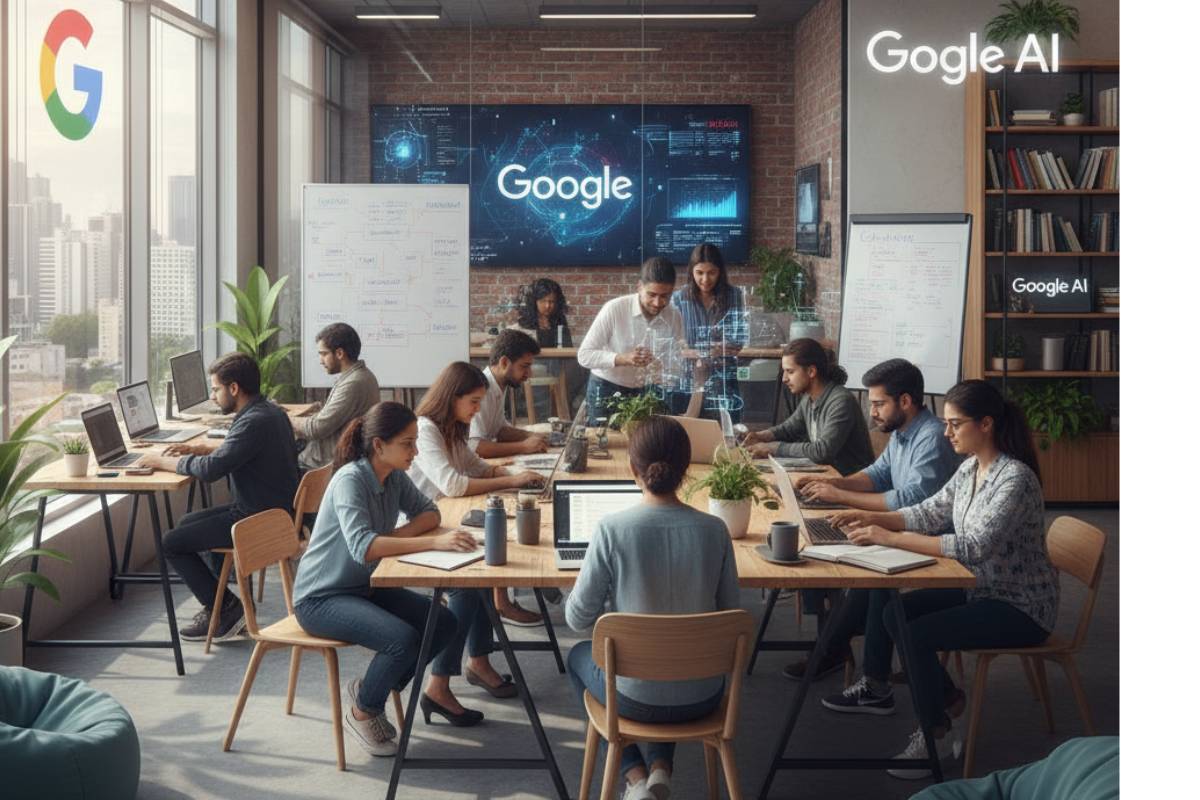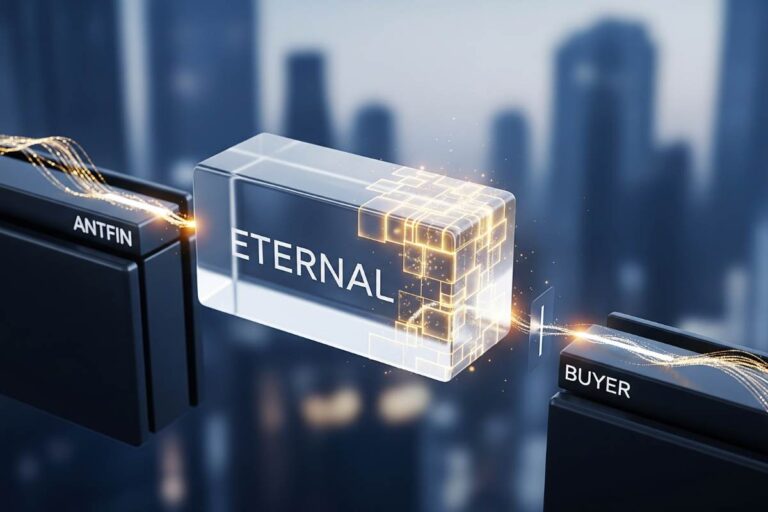Google has chosen 20 promising Indian artificial intelligence startups to take part in its prestigious three-month accelerator program. This is a big step forward for India’s rapidly growing AI ecosystem.
On Friday, the tech giant announced the newest group of companies that will be part of its “Google for Startups Accelerator: AI First” program. These companies were chosen from a pool of more than 1,600 applicants from all over India. This choice… well, it says a lot about how much AI innovation is going on in the country right now.
Program Overview and Strategic Focus
The accelerator program, which started this week, will last from September to December 2025. It is Google’s most focused effort yet to help India’s AI-first startup ecosystem grow. It’s interesting to see how the program fits in with larger national goals.
The strategic focus is exactly like the IndiaAI Mission’s startup pillar, with 45% of the program going to Agentic AI solutions. 30% of the curriculum is about multimodal AI, and the other 25% is about basic models and building responsible AI.
Darren Mowry, Vice President of Global Startups at Google Cloud, said, “We see startups as our co-creators in building the future of AI.” The goal of the company is to help these businesses create “scalable, impactful, and responsible AI solutions that will set new standards for the industry.”
India’s Growing AI Industry
India’s rise to become a global leader in AI has been nothing short of amazing. The country is now the second-largest hub for Generative AI startups in the world, thanks to an amazing 3.7-fold increase in its GenAI landscape over the past year.
These numbers aren’t just impressive on paper; they’re having a real effect on the economy. Experts say that India’s Generative AI market will be worth more than $17 billion by 2030. This will be a key part of reaching the country’s goal of a $1 trillion digital economy by 2028.
The timing is just perfect. Abhishek Singh, the Additional Secretary at MeitY and CEO of IndiaAI Mission, said that the program’s strategic focus is a perfect fit with the country’s AI development goals.
Full Support Package
Not only do chosen startups get to brag about their success, but they also get a lot of help that is meant to speed up their growth. The package includes access to Google Cloud infrastructure and cutting-edge Gemini models, as well as technical help and strategies for getting to market.
Google engineers and industry mentors work with each startup to help them deal with problems with scaling, improve their product roadmaps, and make sure that AI is used in a moral way. There is also something very useful here: Startup Success Managers who help companies through the whole program.
The help goes beyond just technical resources. Participants get to use Google’s global network and get expert help with AI, cloud, Android, and product growth. GenAI buildathons and AI masterclasses are some of the special events. They end with a demo day presentation to Google teams, mentors, VCs, and important people from India’s startup scene.
Notable Startups That Were Chosen
Google hasn’t released the full list of all 20 chosen startups yet, but some well-known companies have been named. The group includes:
- Nawgati, a platform for fuel technology
- BigOHealth, GenWise, and FrontPage
- kindlife.in, Sub-K, Sunfox Technologies, DeepVisionTech.AI, and TrueFan AI
Among the most intriguing participants is a healthtech startup offering webcam-based autism screening tools, and another providing a full-stack agentic platform where AI creates AI. These examples show the wide range of uses being created, from AI systems that can work on their own to healthcare diagnostics.
Vaibhav Kaushik, CEO and co-founder of Nawgati, was excited about the chance: “This chance will not only speed up our technological growth, but it will also help us make more money for gas station owners, fleet operators, and everyday customers.”
Areas of Impact Across Industries
The chosen startups work in a number of important fields, showing that AI can be used in many parts of India’s economy. Healthcare is becoming a major focus, with companies working on diagnostic tools and screening solutions.
Climate solutions, educational technology, and financial services are other important areas. This variety shows that the program’s goal is to use AI to solve India’s biggest problems on a larger scale.
Interestingly, the focus is on real-world uses of AI instead of how to build it in theory. These new companies are creating solutions to real-world problems, like making healthcare easier to access and making it easier for people to get loans.
Working with the Government to Get Things Done
The accelerator works with help from the MeitY Startup Hub, which shows how private tech companies and government agencies can work together. This partnership makes the link between Google’s program and India’s overall plan for AI development stronger.
The IndiaAI Mission sets the national priorities for AI, and Google’s accelerator directly helps these goals. This alignment makes sure that the growth of startups helps the country as a whole and gets support from the government.
The Past and the Program’s Growth
Google has been dedicated to India’s startup ecosystem for more than ten years. More than 230 Indian startups have been helped by the Google for Startups Accelerator since it started in 2015. Some well-known alumni are:
- Namma Yatri
- ShareChat
- Magic Pin
- Zypp Electric
Over the years, the program has changed a lot. At first, Google only worked with tech startups in general. Now, it has special tracks like the AI First cohort and the Apps cohort. Every year, Google India picks about 40 startups from these different programs.
Paul Ravindranath G, Senior Programme Manager for Google for Startups Accelerator India, said that there were some interesting trends: “The COVID-19 pandemic saw a trough because the number of people starting up and the number of companies out there was kind of plateauing out, but since the AI shift, we have seen a huge spike in the number of startups who apply.”
Areas of Technical Focus
The program’s focus on technology is in line with current AI development goals. Agentic AI, which includes systems that can make decisions and take action on their own, is the biggest focus of the curriculum, making up 45% of it. This focus shows that Google thinks that AI systems that can work on their own will lead to the next wave of innovation.
Multimodal AI, which makes up 30% of the program, is all about systems that can process and understand different types of data at the same time, like text, images, audio, and video. This ability is very important for making AI applications that are more advanced.
The last 25% goes to foundational models and Responsible AI. This makes sure that startups make solutions that are both technically sound and morally sound. This balance shows that people know that AI development needs to be both new and responsible.
The World and Its Competition
India is now the second-largest GenAI startup hub in the world, making it a major player in the development of AI around the world. This status is based on more than just the number of startups; it’s also based on their quality and ability to come up with new ideas.
India’s GenAI market has grown 3.7 times faster than many other markets in the past year. This quick growth brings both chances and problems. There is more room for innovation, but there is also more competition for talent and resources.
Google’s investment in Indian AI startups is also a smart move in a market that is expected to make a big difference in the progress of AI around the world. Google helps shape the future of AI development by backing early-stage companies. This gives Google access to new technologies.
Effects on the Economy
The effects on the economy as a whole go far beyond the success of any one startup. India wants to have a $1 trillion digital economy by 2028, and part of that depends on AI innovation and use. These new businesses could be very important in helping to reach that goal.
The $17 billion GenAI market forecast for 2030 suggests that a lot of economic value will be created. But to make this potential a reality, we need more than just developing new technology. We need to scale it up, get people to use it, and make sure the business models are sustainable.
Google’s support helps solve some common problems that new businesses face, like getting access to advanced technology, technical know-how, and connections in the market. This all-encompassing approach makes it more likely that these startups will have a real impact and grow to a large size.
What to Expect
The launch in September is just the start of an intense three-month journey for these 20 startups. The program has parts for both technical development and business strategy. These are meant to get companies ready for big growth.
At the end of the program, demo day presentations will give these startups a chance to meet:
- Google teams
- Mentors
- Venture capitalists
- Other important people in the ecosystem
This visibility is often very important for getting more funding and partnerships.
The success of this group will probably affect how future programs are run and how much money Google continues to put into India’s AI ecosystem. With over 1,600 applications for only 20 spots, it’s clear that demand is higher than supply.
India is still working on its AI skills, and programs like Google’s accelerator help both individual startups and the country’s overall AI goals. When the private sector and the government work together, they can create a strong framework for long-term ecosystem development.
In the next few months, we’ll find out if these 20 startups can turn Google’s help into game-changing new ideas and businesses.




















